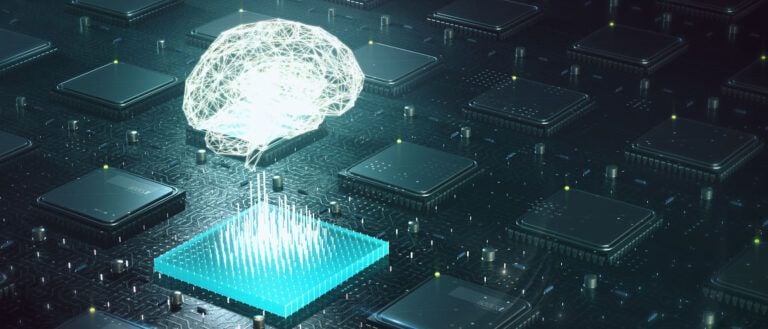Machine Learning Fairness: An Antidote to AI Bias?

- What is Machine Learning Fairness?
- Why is Machine Learning Fairness Important?
- Why is it Crucial to Discuss Ethics and Fairness in Machine Learning?
- How to Make Machine Learning More Fair and Ethical?
- Tools for Machine Learning Fairness
- What is the Difference Between Bias and Fairness?
- How Emeritus Can Help You Learn AI and Machine Learning
A 2022 International Labor Organization report ‘Break the Bias’ observed gender-based biases in household data as reflections of human and systemic prejudices prevalent in society. This is an example of the bias that exists in big data. If machine learning is born from data, humans are the origins of that data. Consequently, globally accumulated data becomes a digital signature of the entire gamut of human prejudices. But how do we mitigate this data bias and introduce machine learning fairness in a world where Artificial Intelligence (AI) takes the lead? Let’s discuss why machine learning fairness matters.
What is Machine Learning Fairness?
Machine learning bias occurs when certain elements of a data set are represented more frequently than others, skewing outcomes and leading to erroneous conclusions. Although the models learn to mimic decisions made by humans with minimal intervention, these biases result in digital discrimination against minority groups. Machine learning fairness is the process of regulating the mathematical bias in automated decision-making processes and eliminating digital prejudices of race, ethnicity, gender, disability, class, and sexual orientation.
Why is Machine Learning Fairness Important?
It is true that any knowledge processing system objectively learns what you want it to. However, there is no means for AI to objectively verify the quality and authenticity of the training data. If the available data has social biases encoded in its fabric or is a collection of wrong sampling methods, the machine learning platform will perform differently for different groups. This is why machine learning fairness is central to maintaining equity in analysis.
ALSO READ: Artificial Intelligence vs. Machine Learning: What are the Key Differences?
Why is it Crucial to Discuss Ethics and Fairness in Machine Learning?
As AI seeps into every aspect of our lives, it is important to ensure that machine learning practices have an ethical net as its absence would undermine the ideas of equal participation, accountability, transparency, and diversity. Moreover, introducing ethical boundaries can also ease the fear of mass unemployment or surveillance surrounding AI.
How to Make Machine Learning More Fair and Ethical?
If the deployed algorithms show biases in performance for different data groups, the problem can be approached from two perspectives:
- Minimizing Fairness of Error: All groups are subjected to the same error in predictions.
- Maximizing fairness of representation: All groups are subjected to equitable distribution of favorable outcomes.
One can ensure fairness in machine learning methodologies by taking the following measures:
- Identify the history of data collection, the integrity of data sets, and research methodologies.
- Identify the influential characteristics of the algorithm and avoid predictive bias.
- Use dedicated tools to promote fairness and eliminate algorithmic bias.
Tools for Machine Learning Fairness
Machine learning fairness tools incorporate themselves into the organizational workflow to scrutinize malpractices within data repositories and analytical models. Some of the widely used tools are:
Fairlearn.py by Microsoft
It is an open-source Python package that helps developers assess the impact of their mitigation strategies on all the issues of unfairness. Apart from mitigation algorithms, Fairlearn also offers model fairness assessment tools.
Google Cloud Model Cards
Model cards are a great help in understanding the blueprint of an ML model. They highlight the main functional capabilities of a model, its target audience, and its maintenance measures. They help increase machine learning fairness by filtering the best modeling practices.
AI Fairness 360 by IBM
IBM’s AI Fairness is an open-source Python toolkit comprising fairness metrics and some preset definitions of fairness that empower data scientists to verify discrimination in data collection and analysis.
ALSO READ: Deep Learning vs. Machine Learning: The Ultimate Guide for 2022
What is the Difference Between Bias and Fairness?
To begin with, bias is a fundamental component of our world and is deeply encoded in our society. Biases can be statistical, historical, and even methodological and they seep into our data every minute. Even if the analysis machinery produces unbiased data, the final reviewer might as well color the analysis with their personal biases. Fairness is the process of weeding out all forms of bias from data in every stage of the data lifecycle.
How Emeritus Can Help You Learn AI and Machine Learning
If you want to be able to tackle the ethical challenges directly affecting us, learn more through the AI and machine learning courses on Emeritus. These will train you for the practices of the future as well as help you deal with its ethical dilemmas.
Written by Bishwadeep Mitra
Write to us at content@emeritus.org






